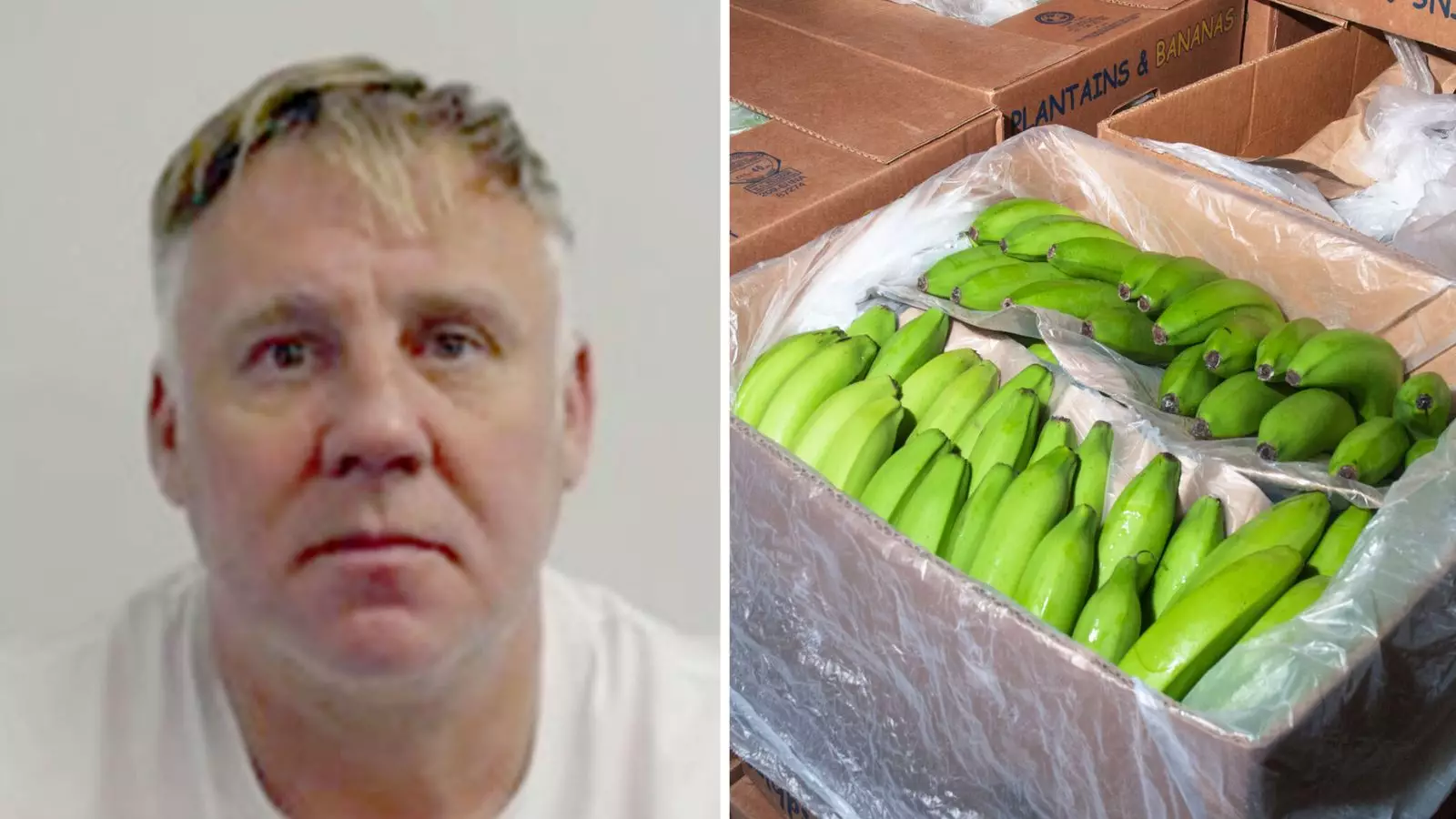In the murky underbelly of the UK’s drug trade, the figure of Jamie Stevenson, infamously dubbed the “Iceman,” has emerged as a central character, embodying the complexities of organised crime. Recently sentenced to 20 years in prison for orchestrating a significant cocaine smuggling operation connecting South America and Scotland, his story reveals not only his own rise and eventual fall but also the intricate lattice of criminal networks operating within the UK. Stevenson’s case serves as a cautionary tale about the lengths individuals will go to in pursuit of power and profit while simultaneously inviting a closer examination of the measures employed by law enforcement in grappling with these persistent criminal enterprises.
Stevenson’s conviction stems from a scheme that sought to import nearly a tonne of cocaine hidden within a shipment of bananas—a plot that reflects the audacity and resourcefulness often seen in those committed to the drug trade. This shipment, uncovered by Border Force agents at Dover in September 2020, signified not just a substantial quantity of narcotics, valued at an estimated £100 million, but also the extent of Stevenson’s influence in directing the operations of his criminal organization. The shipment’s destination, a fruit merchant in Glasgow, points to the clever tactics employed by traffickers who frequently camouflage drugs within legitimate products to evade detection.
Operation Pepperoni, the inquiry led by the National Crime Agency (NCA) and Police Scotland, underscores a wider effort to dismantle organised crime networks. This operation is notably interlinked with Operation Venetic, which marked a significant turning point in UK law enforcement’s approach following the breach of the encrypted communications service, EncroChat. This strategic collaboration suggests a shift towards tackling organised crime through harnessed intelligence and sophisticated surveillance methodologies, illustrating the changing dynamic in the fight against drugs and other criminal activities.
Stevenson’s criminal history paints a portrait of a man deeply entrenched in illegal activities for decades. His previous conviction in 2007 for money laundering is reminiscent of the infamous Tony Soprano from the beloved television series, “The Sopranos,” drawing parallels between fictional depictions of crime and Stevenson’s real-life exploits. The Scottish Crime and Drug Enforcement Agency’s investigation during that period, known as Operation Folklore, utilized cutting-edge surveillance techniques to uncover his extensive criminal operations, hinting at the necessity for constant evolution in law enforcement strategies.
The emergence of a pill manufacturing facility for etizolam—a substance often misclassified as “street valium”—was yet another layer to Stevenson’s illicit dealings. Upon the discovery of this factory in Kent in June 2020, Stevenson tried to elude capture by fleeing abroad, an act indicative of the high stakes and active management common in underworld dealings.
The Impact of Arrest and Sentencing
Stevenson’s eventual arrest while jogging in the Netherlands highlights the global nature of criminal operations and law enforcement’s persistent efforts to capture fugitives who may seek refuge in foreign countries. His subsequent extradition to the UK illustrates the increasingly cooperative international dynamics among law enforcement agencies, an essential component for combating the transnational drug trade effectively.
In addition to Stevenson, several co-defendants were implicated and faced various sentences, ranging from three years to seven years in prison for their roles in the production and supply of etizolam and other serious drug offenses. The fact that these individuals were involved in a network that stretched internationally—from London to Abu Dhabi—underscores the sophistication of drug trafficking organizations and their operations that often obscure the line between legitimate business and illegal endeavours.
The case of Jamie Stevenson serves as a poignant reminder of the persistent threat posed by organised crime in the UK. It exposes the realities of a life dictated by greed and power, leading ultimately to grave consequences. While his sentencing marks a noteworthy victory for law enforcement, it also underscores the continuing battle against drug trafficking and the pervasive nature of these criminal networks. As authorities adapt and evolve their strategies, the ongoing fight against organised crime will require not only enhanced cooperation but also innovative approaches to stay one step ahead of those determined to exploit others for profit.


Leave a Reply